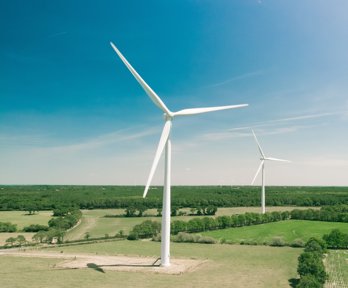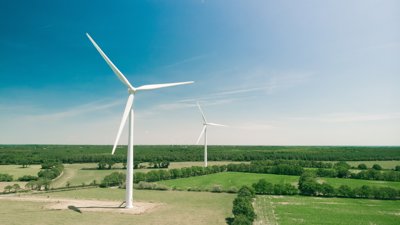Teaching and learning throughout the module focus on a range of geographical themes that are investigated through case studies of countries that form part of the European Union (EU). In addition, each of the seven lessons within the module includes a starter activity which introduces students to some relevant key terms in the language of the country being studied.
Introducing the EU
The first lesson of the unit focuses on the European Union as a whole. It locates - spatially and temporally - the 27 countries that form this organisation, and considers the broad aims of the EU from which the geographical themes for the remainder of the module are drawn.
Migracja zarobkowa w Polsce (Economic migration in Poland)
The first case study, introduced in lesson two, is that of Poland, a country which joined the EU during a time of major expansion in 2004. The implications of the EU policy of the free movement of citizens between countries for the purposes of work and residence are explored in this lesson through economic migration from Poland (and other new EU countries) to the UK.
Le crime en France (Crime in France)
The third lesson investigates levels of crime in the EU through the case study of ‘hate crime' in France. This lesson links to the ‘security and justice' policy of the EU, that all citizens have the right to feel safe and secure from crime. Students compare crime levels in several countries before researching incidences of hate crime in France. The lesson ends with a discussion about what can be done to help to reduce and prevent crime across the EU.
Windenergie in Deutschland (Wind energy in Germany)
In complete contrast, the following lesson introduces the notion of renewable energy - a top priority for EU environmental policy. The case study here is of an offshore wind farm in Germany, the Alpha-Ventus project. Students undertake research to outline the advantages and disadvantages of this form of energy production, leading to a wider discussion around options for renewable energy and the reduction of our energy consumption.
La Producción de Fresa en España (Strawberry production in Spain)
Lesson five moves to Spain, where the social, economic and environmental implications of EU trade and citizenship policies are studied through the example of strawberry production. Many students will be familiar with the year-round availability of strawberries in our supermarkets (many of which come from Spain), but the case study is a thought-provoking look at the implications of this convenience for a World Heritage Site in southern Spain.
Turisam v Bulgaria (Tourism in Bulgaria)
The penultimate lesson of the module examines the topic of tourism - frequently studied in Key Stage 3 geography lessons, but not often using the case study of Bulgaria. The free movement of EU citizens has had positive implications for many countries' tourism industries, and here the focus is on the opportunities for ‘alternative' tourism experiences for visitors to one of the newest members of the EU community.
Attivitá vulcanica in Italia (Volcanic activity in Italy)
Finally, the issue of natural hazards is raised through the case study of Mount Vesuvius in Italy. For people who live in the vicinity of what is considered the world's most dangerous volcano, difficult decisions need to be made as to whether to relocate away from danger or to stay in an otherwise attractive location. Students engage in this dilemma, putting themselves in the shoes of residents of the ‘zona rossa' and justifying the decision(s) they would make.

Introducing the EU
Find out more about the EU

Migracja zarobkowa w Polsce (Economic migration in Poland)
What are the positive and negative impacts of Polish migrant workers, and how do they influence British culture and society

Le crime en France (Crime in France)
Why are levels of hate crime higher in France than in other EU member states?

Windenergie in Deutschland (Wind energy in Germany)
An example of a renewable energy project within an EU country

La Producción de Fresa en España (Strawberry production in Spain)
Where are the main strawberry production areas in Spain, why are they here, and how do EU trade and citizenship policies help the industry?

Turisam v Bulgaria (Tourism in Bulgaria)
What are the physical and human attractions of Bulgaria?

Attivitá vulcanica in Italia (Volcanic activity in Italy)
Monte Vesuvio in Italia - Mount Vesuvius in Italy
